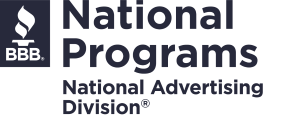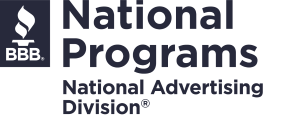Who Qualifies for the Earned Income Tax Credit?
iCrowdNewswire
Apr 05, 2022
Tax season can be stressful, especially for lower- and middle-class families. But luckily, the IRS created several breaks specifically for taxpayers in lower income brackets. If you work but earn below a certain threshold and meet a few other criteria, you may qualify for a substantial tax break called the Earned Income Tax Credit. Here’s how the earned income tax credit works, the requirements to claim it, and some loan alternatives you could use if you don’t qualify.
What is the Earned Income Tax Credit?
The Earned Income Tax Credit (EITC) is a tax credit designed to help low- to moderate-income working families save money on their tax bills. Since this is a tax credit, it reduces your tax owed (not your taxable income) dollar-for-dollar. This is unlike a tax deduction, which only reduces your taxable income. So, the EITC can potentially save some families a significant amount of money on their taxes and could help them get a refund. For instance, if you owed $500 in taxes and got a $200 EITC, you’d owe $300.
How to qualify for the Earned Income Tax Credit
According to the IRS, you must meet the following basic rules to qualify for the EITC:
- Have worked and earned income under $57,414 (may change every year).
- Have investment income below $10,000 in the tax year 2021 (may change every year).
- Have a valid Social Security number by the due date of your 2021 return (including extensions) — everyone on your return must also have a valid Social Security number.
- Be a U.S. citizen or a permanent resident all year.
- Not file Form 2555 (related to foreign earned income).
All filing statuses can be eligible for the EITC. And in many cases, you must have a qualifying child per the IRS’s rules to be eligible. But keep in mind that there are some exceptions even if you meet the basic rules laid out above:
- You must have your main home in the United States for more than half the tax year. All 50 states, Washington DC, and US Military bases count. Guam, the Virgins Islands, and Puerto Rico don’t count.
- You can’t be claimed as a qualifying child on anyone else’s tax return.
- You must be at least age 18 at the end of the tax year (usually December 31).
Earned Income Tax Credit alternatives
If you don’t qualify for the EITC but need some extra cash temporarily, here are some other options:
Cash advances
Cash advances are short-term, small-dollar loans that use you can use to cover expenses before your next payday. These loans are typically repaid in two to four weeks, when you receive your next paycheck. They often come with fast funding and less strict credit score requirements. If you have poor or fair credit and new cash fast, a cash advance can be a good choice. Just make sure you have a repayment plan in place to avoid additional interest rates and fees.
Installment loans
Installment loans are lump sums of cash that you pay back in fixed, monthly installments of principal and interest. The predictable monthly payments make these easier to budget for — making them good choices if you don’t qualify for the EITC.
Lines of credit
Lines of credit let you borrow as much as you need up to your credit limit. You then pay it back either all at once or over time at your leisure, making this a flexible option. You’ll only pay interest on the funds you borrow. Many borrowers get lines of credit as a financial backup, thanks to the flexibility these loans offer.
The bottom line
The EITC can offer significant tax savings to hardworking taxpayers, helping them provide for their families. As long as you meet some basic rules and fall below the IRS’s EITC income threshold, you may qualify for this tax break.
But if you don’t qualify, there are several loan options — such as cash advances, installment loans, and lines of credit — that can provide you with the funds you need. Ensure you consult the IRS website and consider speaking with an accountant if you aren’t sure about your EITC eligibility.
Notice: Information provided in this article is for information purposes only. Consult your financial advisor about your financial circumstances.
Contact Information:
Name: Michael Bertini
email: [email protected]
Job Title: Consultant
Tags:
Menafn, IPS, Reportedtimes, Google News, Financial Content, ReleaseLive, PR-Wirein, CE, iCN Internal Distribution, Extended Distribution, English




